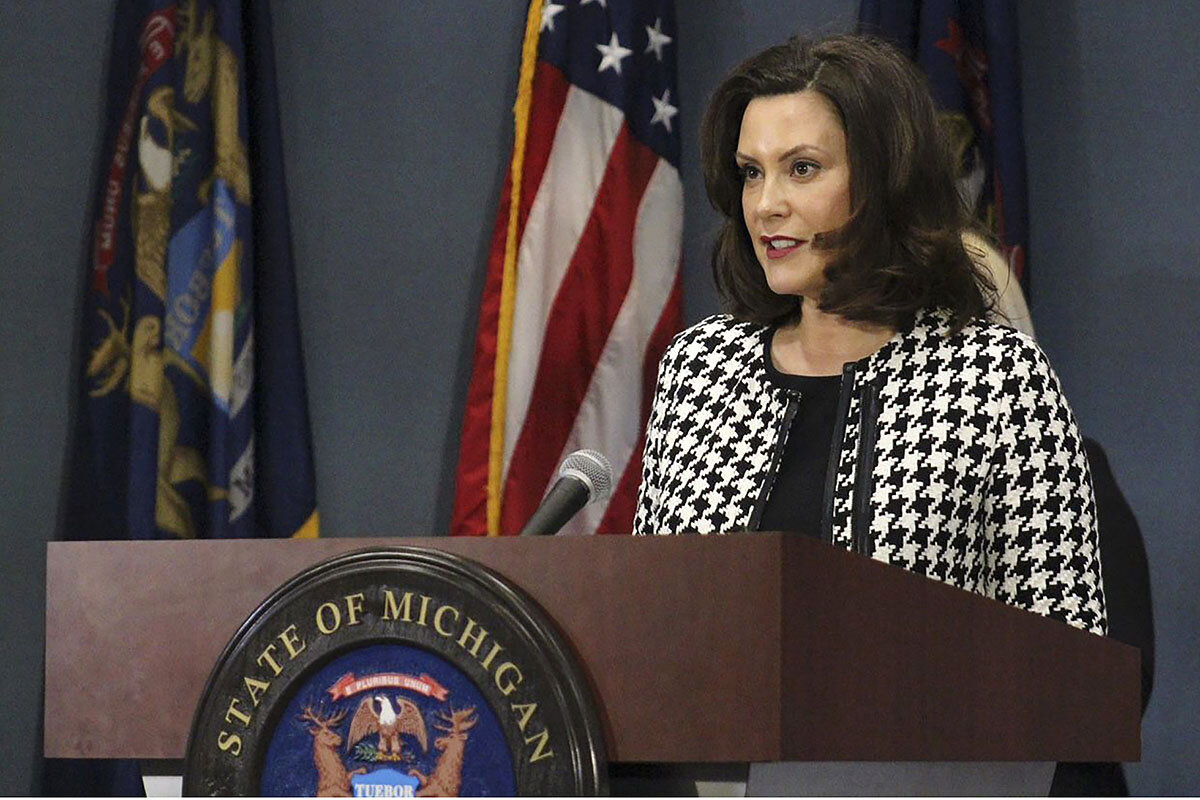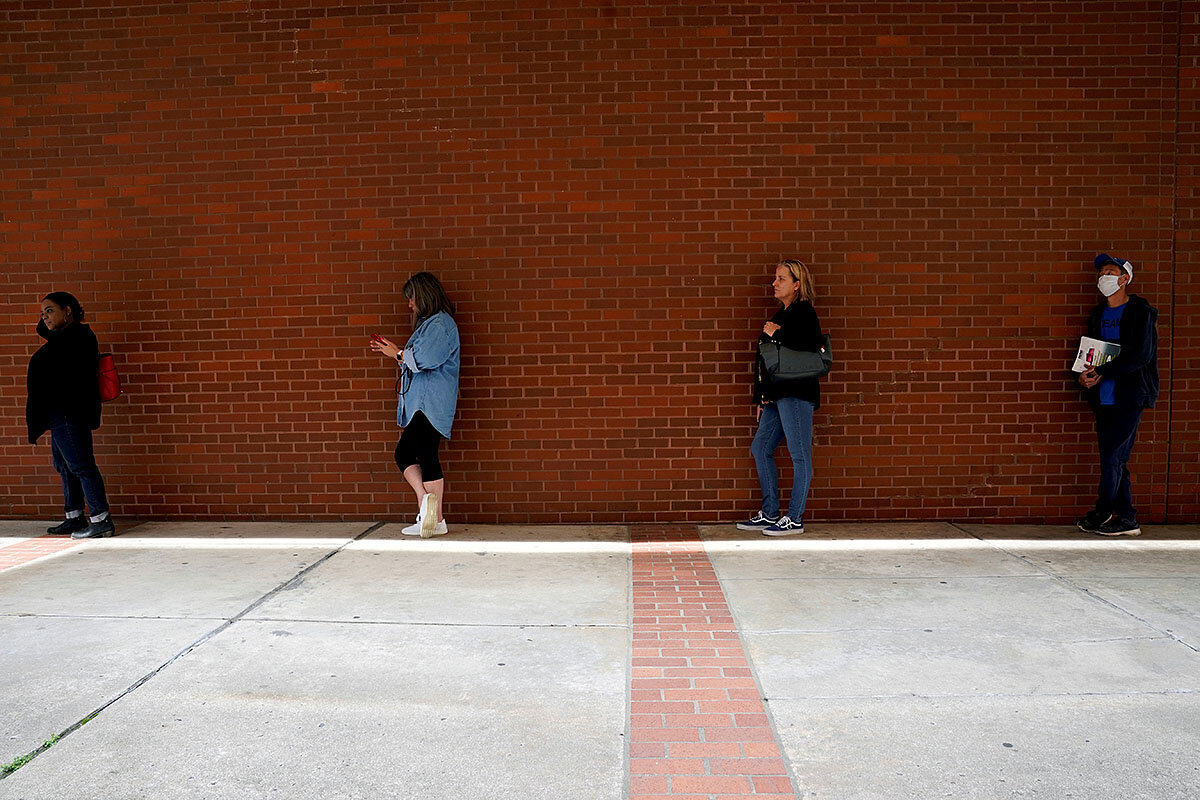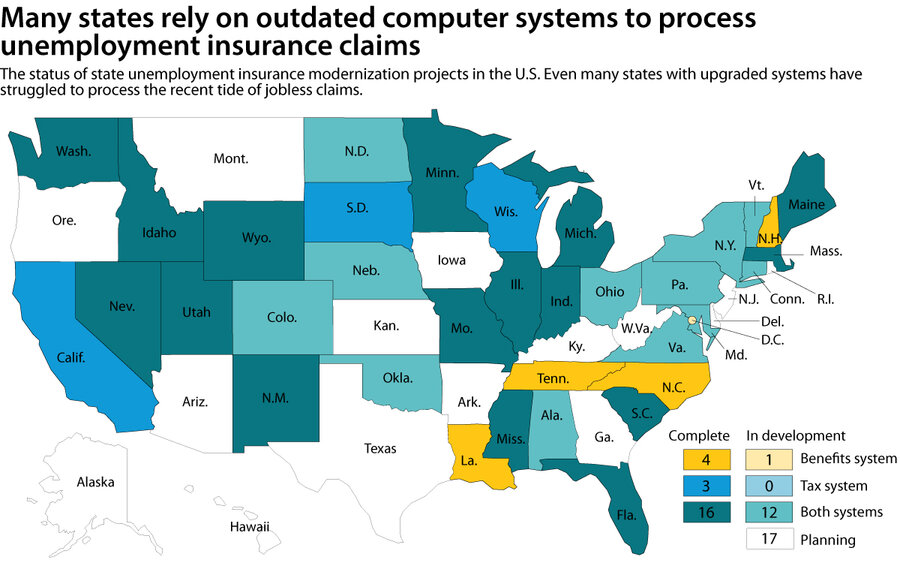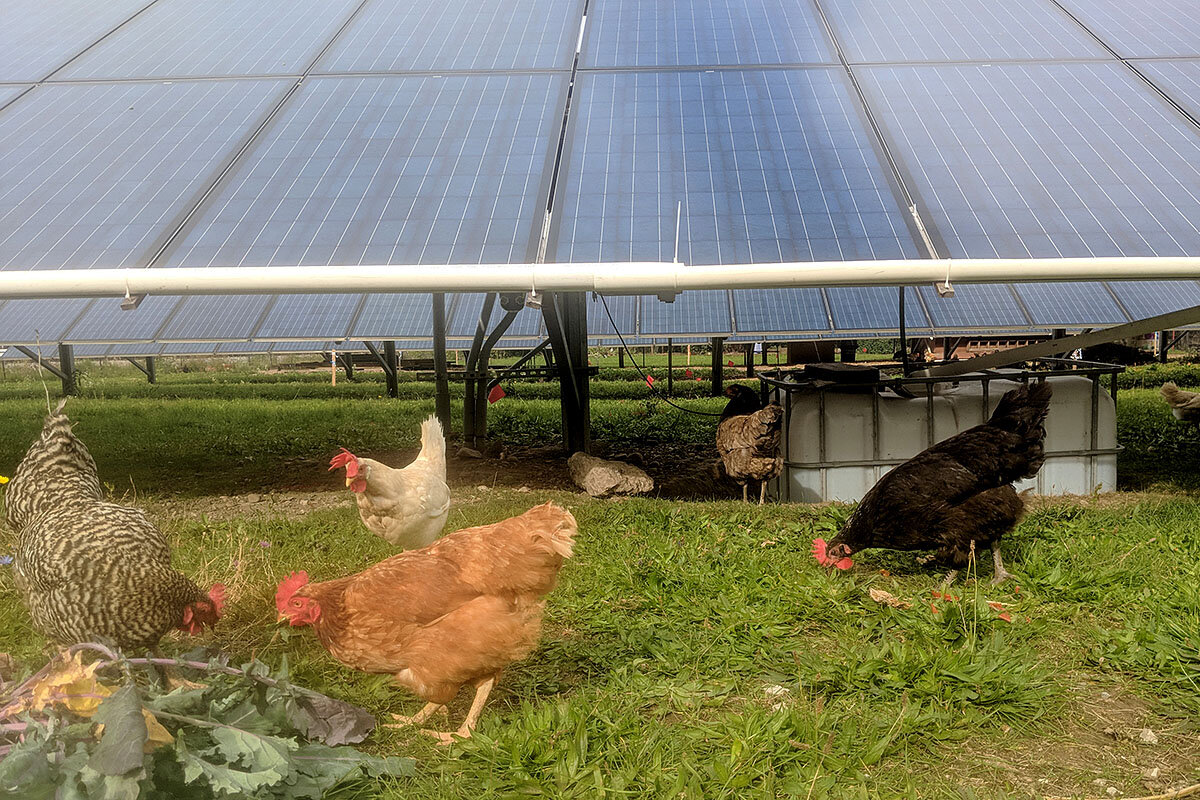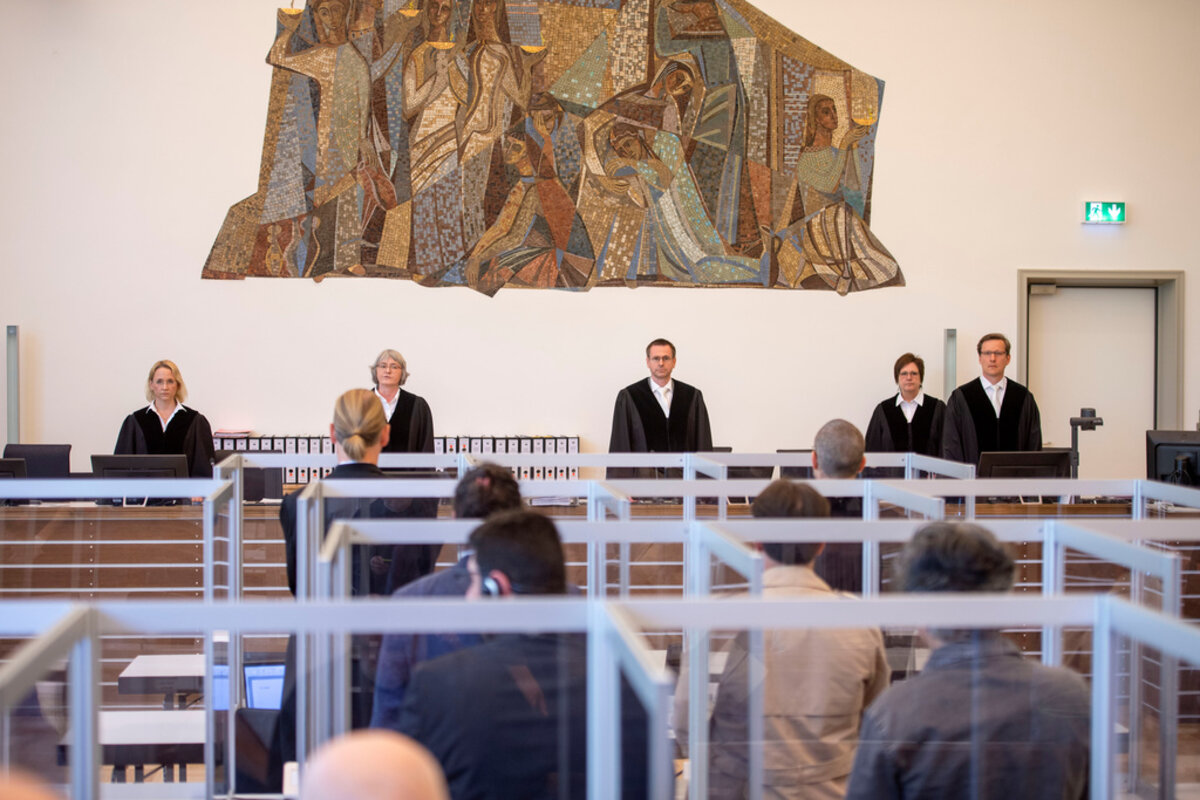Nuclear weapons are, for the moment, a global issue that’s decidedly overshadowed. Our writer breaks down what might have happened at a now-delayed conference, and how the delay may have opened room for thought to shift.
Monitor Daily Podcast
- Follow us:
- Apple Podcasts
- Spotify
- RSS Feed
- Download
 Clayton Collins
Clayton Collins
Today we explore nuclear weapons chess, governors grouping on COVID-19, a ground-level take on the unemployment spike, student-loan justice, and where solar meets farming. First, a look at some lessons in communitarianism.
The term “intentional community” could arguably describe any human settlement where inhabitants willingly cluster. A more specific definition applies to groups with shared values and resources (child-minding might be an eagerly sought example) as well as shared spaces.
At a time when perspectives on what constitutes “common good” vary wildly – including at all levels of government – it’s worth looking at communities that bring real intensity to their intentionality.
When I reached Cynthia Tina, a co-director at the Foundation for Intentional Community, she had just finished a two-hour call with the Global Ecovillage Network. FIC promotes cooperative, healthy, sustainable living.
Ms. Tina, a self-described former eco-nomad, ran me through the difference between consensus-based decision-making on community actions and a consent-based process that she sees as a rising alternative.
“The idea is not to get everyone to agree unanimously,” she says, “but to make sure no one has an objection.” Objections to deviations from agreed-upon values are taken seriously. Experimental approaches – to any issue – face a trial period. “We have a saying,” she says. “Good enough to try, safe enough for now.”
Getting to effective unity requires respect, and the suspension of personal or political agendas. A social challenge like the coronavirus – one that underscores existing social dysfunction – calls for making community the top priority at the global, national, and state levels. (And, of course, locally.)
“Community, at its core, really means listening to each other,” Ms. Tina says, “practicing deep listening, and seeking to understand others’ views.”





